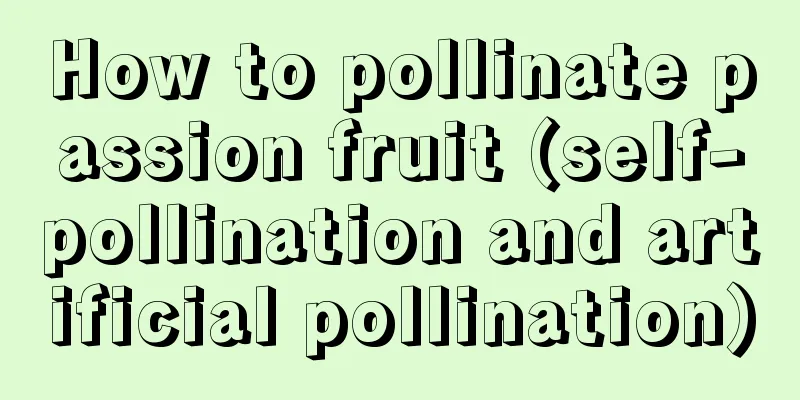Cultivation methods and precautions of weeping begonia. Key points for potted weeping begonia maintenance

|
Weeping Begonia is easy to grow. As long as you understand its growth habits and characteristics, you can grow it well. It has a very strong adaptability to the environment, and its flowers are bright in color and beautiful in shape, making it the first choice for potted flowers. Maintenance method of weeping begonia potted plants1. Soil Weeping begonia is suitable for planting in loose and fertile soil with good air permeability and drainage . Flower lovers can mix 4 parts of garden soil, 3 parts of leaf mold, and 3 parts of river sand or perlite for potted weeping begonia. 2. Lighting The weeping begonia is very intolerant to shade. If placed in a dark environment, the weeping begonia will bloom less or not at all. It needs to be moved to a sunny place and ensure more than 8 hours of light a day . Sufficient light will make the color of the weeping begonia more vivid. 3. Moisture The weeping crabapple needs more water during the growth period, usually it needs to be watered every 2-3 days . In summer , the temperature is high and the water evaporates too quickly, so you can water it in the morning and evening, and spray it with water appropriately . In winter , the temperature is low and the water demand is low, so watering once every half a month is enough . 4. Temperature The temperature requirement of the weeping begonia is between 15 and 28 degrees . The temperature is stable in spring and autumn, high in summer, and should avoid high temperatures of 35 degrees. The temperature is low in winter, and the indoor temperature should not be lower than 10 degrees. 5. Pruning After growing for a period of time, the weeping crabapple needs to be pruned, which can increase the number of flower branches and make it bloom at night. In the later stage, you need to pay attention to whether there are dead branches and diseased branches, and cut off the excess branches and diseased leaves . Weeping Begonia Care PrecautionsIn summer , the temperature is high, and the weeping crabapple cannot tolerate direct sunlight. It should be kept away from strong sunlight and placed in a cool, ventilated place . In winter , the temperature is low and the light is soft, so it can be placed in a well-lit place indoors for cultivation . Red spider mites often appear in weeping begonias . When they are found, they need to be sprayed with a powder made of trichlorodifenone and trichlorodifenol . Don't panic when yellow leaves appear. The main reason is lack of water or excessive fertilization , which requires timely symptomatic remedy. How to Overwinter the Weeping BegoniaThe weeping begonia is very cold-resistant and has strong adaptability. Some varieties can withstand low temperatures of -15°C and high temperatures of 35°C. Although the weeping begonia has strong cold resistance, the cold resistance of seedlings is weaker than that of mature plants. There is basically no need to take any protective measures for the weeping begonia in winter . |
<<: Why can't osmanthus trees be planted at home? Can osmanthus trees be planted at home?
>>: What does Ophiopogon japonicus look like? What are the effects of wild Ophiopogon japonicus?
Recommend
When is the best time to prune wood chrysanthemum? Which month does pruning not affect flowering?
Wood chrysanthemum pruning time It is generally m...
Papaya prefers shade or sun
Papaya prefers shade or sun Papaya is a food from...
Do Wanchongshan prefer shade or sunshine?
Do Wanchongshan prefer shade or sunshine? Wanchon...
How to grow gardenia in water? How to grow it at home
Can Gardenia be grown in water at home? Water-gro...
Apple tree management technology in December
With the arrival of December, heavy snow and the ...
Is Clivia cold-resistant?
1. Is it cold-resistant? Clivia is not cold-resis...
How to take cuttings of Dieffenbachia
1. Time Selection Generally, it is most suitable ...
How to grow multiple roses
1. Proper pruning After receiving multiple roses,...
How to prune the dwarf ...
Pruning of the dwarf ... The pruning of the jasmi...
How many pounds of oil beans are produced per mu? What is the highest yield per mu?
Oil bean yield per mu The yield of different vari...
Feng Shui Effects of Red Diamond Flowers
1. Feng Shui Effect Red Diamond is a Feng Shui pl...
Can the fortune tree be hydroponically cultivated? Hydroponics cultivation methods and key points
Can the fortune tree be hydroponically cultivated...
The role of Begonia flowers
1. Garden appreciation The crabapple flower has b...
Hawaiian coconut cultivation methods and precautions
1. Breeding methods 1. Matrix It generally prefer...
When is the best time to transplant plum blossoms? What is the best season to transplant plum blossoms?
Before transplanting plum blossoms, you need to c...









